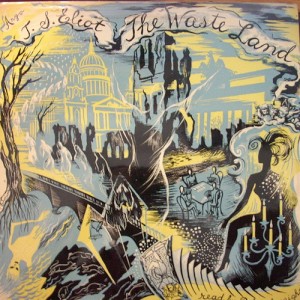Such unfortunate fragmentation
·
It is always difficult to see an artistic soul struggling with inexplicable events and feelings of loss or isolation. Poets, such as T.S. Eliot, can have such cleverness and interest in life it seems to them they are touching on the greatest themes of humanity, or that they are communicating with other creative spirits long gone. This is not necessarily an illusion; literature does allow for writers of long ago to reach readers and other creators of the present, whichever present this may be. Eliot speaks in so many voices, it is as if he as creator did not know any longer what was real or false, or as if he intended the poem to be read in this way. Frequent allusions to other older texts, mythologies, and places show a connection to the past, but do these texts have inherent meaning in themselves? It seems Eliot is pondering the idea that humanity is doomed to repeat the sins of the past, no matter the means by which knowledge is offered, from a wise prophet or a foolish one. For example, one speaker’s reference to “the ships at Mylae” and intense desire to reach out to someone who had experienced the same as he seems to show a confusion as to what has occurred and what it all means. We have all seen what a war on a tremendous scale can do to a person, with some of the authors we encountered last week. The sins of humanity I mentioned, then, drive forward some of the poem. As T.S. Eliot references St. Augustine, in his words “To Carthage then I came,” a wise man telling readers of the sins of his youth, this poem with its many voices and times brings forward wisdom of the past to question what recent events must mean for man. There is also the problem of the “unreal” cities and world presented. This poem of “fragments” is an attempt to understand and connect with this unrecognizable world. I would say this lack of connection with the earth itself is a dangerous situation. This does not allow for true introspection, and neither does it allow for individuals to see one another as equals. Eliot’s poetry shows how unsettled the world of the present may be.
